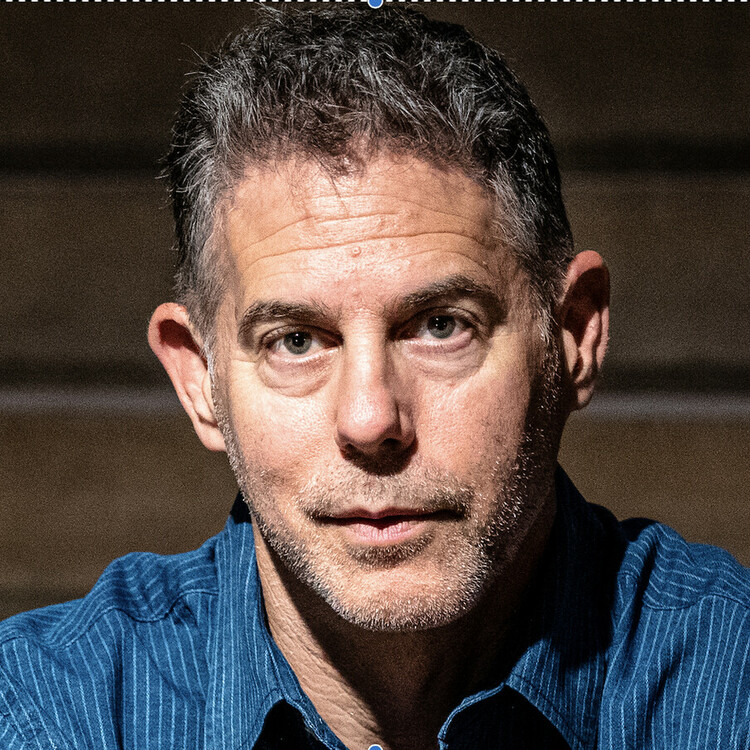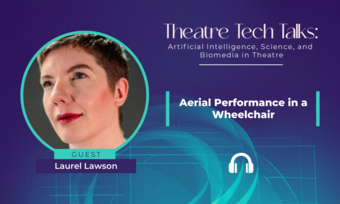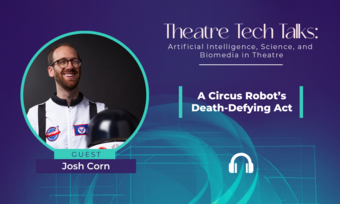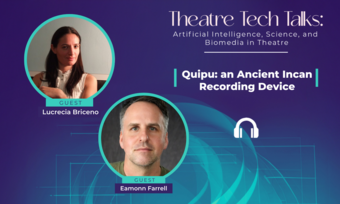Translations
Listening is the new Revolution
This column, published every 4-6 weeks, examines issues of translation as they relate to the field of theater and its intersections with other public and civic sectors. See previous posts here.
February 20, 2013
6:05pm EST
I just shared the text below at the invitation of TCG as the opening "Manifesto" at their first Audience (R) Evolution Convening.
From TCG: “The Audience (R)Evolution Convening is our first step in truly defining the full spectrum of audience development and community engagement, and sharing working models from our field and beyond. The work at this focused Convening will inform the Audience (R)Evolution grant program and programming at TCG's 2013 National Conference in Dallas.”
My talk:
Parson’s New School of Design has a program turning out artists who self define as experience designers. These young creatives are being hired by US firms to conceptualize not just museums and public spaces, but to help imagine cities in China and public transit systems in Russia… they specialize in story, space and participation… there are not theater artists at these firms or on these projects.
Three year old San Francisco not for profit Code for America, dedicated to bringing technology and creativity to the challenge of civic participation, is dropping teams of planners and artists into cities around the US, and supporting their research into public process. These teams are being bid on, by cities, with city money, to come, meet with Mayors and other elected officials, and make proposals for creative solutions to local challenges such as cross neighborhood connectedness and public event formats. There are no theater artists on these teams.
In every community where we reside, school boards, municipal government, unions, hospitals, business councils, city-wide anti violence initiatives, struggle to bring disparate groups of people together to problem-solve. They struggle to build healthy, functional collaborations. They struggle to bring their best imaginative selves to the process of developing visions small and large for your communities.
With some exceptions, we as a field have not risen to engage with these struggles in our communities. We as a field have not claimed our potential. We as a field have not put our selves in partnership with and in service to.
At Sojourn Theatre, we’re partnering with planning commissions around the country to deploy a performance game we created for public engagement around resource allocation; We’re working with Catholic Charities USA poverty reduction sites around the country creating workshops and performances that bring clients, service providers and policy makers into dialogue with each other; We’re developing a participatory planning process for Chicago Parks to help underserved communities around the city develop programming for their communities.
These are examples of Civic Practice, an existing and growing body of work at the intersection of the arts/culture fields and other sectors in our communities.
Let’s name our assets. Let’s seek invitations to new tables and bring our assets with us. Let’s listen, and when appropriate, when of use, offer our assets.
Civic Practice is activity where an artist employs the assets of his/her practice in response to the needs of a civic partner as determined through ongoing, relationship-based dialogue.
A civic partner is an organization or institution that doesn’t have an arts-centered mission.
What are some of the assets theater artists bring to the table when creating projects with civic partners?
The ability to design and lead a process where collaborative activity moves diverse stakeholders with varied self interests towards decision-making and shared investment; The ability to synthesize complex content into meaning that can be both articulated and interrogated; The ability to problem-solve.
Let’s name our assets.
Let’s seek invitations to new tables and bring our assets with us.
Let’s listen, and when appropriate, when of use, offer our assets.
We can become translators, fluent in the ways other sectors—education, health, business, tech, government—talk about their needs.
We can expand our spectrum of activity when bringing theater practice into collaboration with civic partners.
We can rethink the possibilities of partnership and create more opportunities to start with a partner’s needs rather than our own programming.
If we do that, Civic Practice can help us build demand for theater, thereby supporting what many see as our core mission—producing plays.
We can increase our pool of stakeholders and redefine what participation in the arts means; We can increase meaningful opportunities for artists to work in their communities and seed appreciation for creative public activity; We can increase desire for the assets that theater artists bring to community settings beyond the traditional venues of presentation—more people will learn about the power of theater by experiencing it through a variety of forms and encounters.
At the Center for Performance and Civic Practice, we are working with theaters around the country to create models of Civic Practice projects and even departments within institutional structures of small to large scale.
With Bob Lynch at Americans for the Arts I am working to identify and seize advocacy opportunities outside the arts sector.
I believe the potential benefit of meaningful civic practice in our field is ultimately a stronger argument for the arts than economic impact. I believe in the long run it is more sustainable and more authentically at the core of what we do and why we do it.
We’re in Philadelphia, so it seems appropriate to close by saying—democracy needs an audience revolution more than the not for profit arts sector. We have the people, the skills and even the organizational structures to be part of that revolution. Let's listen with radical attentiveness and generosity to those we want to engage. That’s the revolution—listening as the doorway to participation. That’s this moment—and in it is our greatest opportunity to grow and to thrive.











Comments
The article is just the start of the conversation—we want to know what you think about this subject, too! HowlRound is a space for knowledge-sharing, and we welcome spirited, thoughtful, and on-topic dialogue. Find our full comments policy here